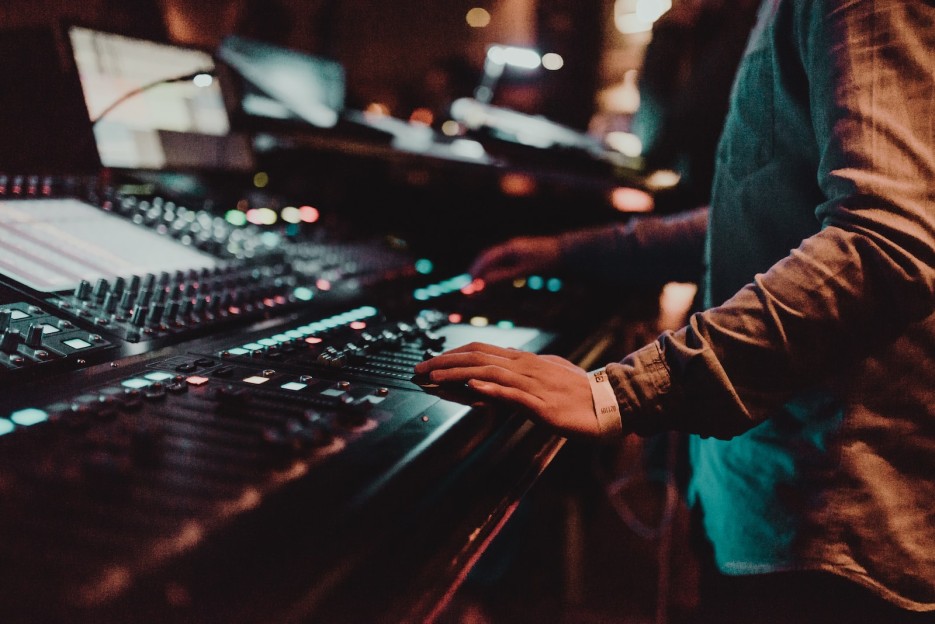
As an independent artist, breaking into the music industry can seem like a challenging task. With the rise of digital technology, however, there has never been a better time to collaborate with other musicians and producers. In this article, we will explore a few of the benefits of music collaboration for independent artists and provide tips on how to get started.
Why Collaborate?
Collaboration is an essential element of music production for independent artists. Not only does it provide the opportunity to learn from others’ experiences, but it also allows for the expansion of your network and exposure to new audiences.
When working with other musicians and producers, you can combine different skills and perspectives, leading to more innovative and exciting projects. Collaborating enables you to share the workload and create something greater than what you could achieve alone.
Moreover, collaborating with others in music production provides a platform for artists to showcase their strengths and develop their talents further. It can be challenging for an artist to work on every aspect of music production by themselves, especially if they are just starting out.
Collaboration allows you to divide tasks among collaborators based on their strengths, making the process more efficient. This way, each collaborator can focus on what they do best while learning new skills from others.
Additionally, collaboration increases exposure within an ever-expanding market by reaching out to different fanbases or followers who may not have heard of your work before. Successful collaborations often lead to further opportunities, such as live performances or future collaborations/projects.
Overall, collaborating in music production offers countless benefits that not only allow independent artists to grow creatively but also increase exposure within the industry through shared goals or complementary skill sets.
Finding Collaborators
The first step in collaborating is finding like-minded individuals who share your musical vision as a beginning music producer. Social media platforms like Twitter, Instagram, Facebook, or LinkedIn are excellent tools for connecting with other musicians. Joining online communities or forums focused on music production can also help you find collaborators.
When looking for collaborators, it’s important to consider their skill level and experience. Working with someone who has more experience than you can be beneficial as they can offer valuable advice on techniques, workflows, or software tools that can improve your production quality. However, collaborating with someone at a similar level can also lead to great results as both parties can learn from each other.
Another important factor when choosing collaborators is communication. You want to make sure that everyone involved in the project has clear expectations about deadlines and responsibilities. It’s also important that all members have good communication skills so that any issues or problems during the collaboration process are addressed quickly.
It may take some time to find the right collaborators for your project but don’t get discouraged. Keep reaching out to people in your network or online communities until you find people who share your vision and have complementary skills.
In summary, finding collaborators requires patience and effort, but it’s worth it in order to produce high-quality music productions while expanding networks which ultimately leads to building a successful career in the music industry.
Tools for Music Production
To collaborate effectively in the music biz, you need the right tools for music production. Digital audio workstations (DAWs) are software programs that allow you to record, edit and mix music on your computer. Some popular DAWs include FL Studio, Ableton Live, Logic Pro X, and Pro Tools.
As a music producer choosing a DAW, consider factors such as ease of use, compatibility with other software/hardware, and cost. Many DAWs offer free trials or lite versions that allow you to test them out before committing fully.
Aside from a digital audio workstation, there are several other pieces of music production equipment that are essential for music production. Studio monitors or headphones are necessary for accurate sound reproduction while mixing/mastering tracks. Audio interfaces enable you to connect microphones/instruments to your computer, while MIDI controllers allow for easier input of musical notes/chords.
Working Together
Once you have found collaborators and have the necessary equipment/software in place, it’s time to start working together! Communication is key when collaborating; make sure everyone is clear about their roles/responsibilities and establish regular check-ins/meetings.
Sharing files is another crucial aspect of collaboration in music production. Online file-sharing services such as Dropbox or Google Drive make it easy to exchange files between collaborators regardless of location/time zone.
It’s important to keep track of versions/changes made during the project; using version control software like GitHub or Bitbucket can help prevent confusion over which version of a file is being used.
Benefits of Collaboration
Collaborating with other passionate artists in music production offers numerous benefits beyond simply creating new content together. You also have the chance to:
- Expand your network: Collaborating with others introduces you to new people within the industry who may become valuable contacts down the line.
- Learn new skills: Working alongside others exposes you to different techniques/approaches that you may not have considered before.
- More efficient workflow: Dividing up tasks among collaborators allows everyone involved to focus on their strengths rather than trying to do everything themselves.
- Increased exposure: By working with others who have their own fanbase/followers, your work reaches new audiences that may not have heard it otherwise.
- More opportunities: Successful collaborations often lead to further opportunities, such as live performances or future collaborations/projects.
The Bottom Line
Music collaboration offers countless benefits for independent artists and music producers looking to break into the industry or expand their network/reach new audiences. Finding like-minded individuals through social media/online communities can be a great way to get started, while having the right tools/equipment/software ensures smooth communication/workflow throughout the project.
By working together with others in music production projects/artistic endeavors—whether through shared goals or complementary skill sets—artists will find themselves able not only to grow creatively but also increase exposure within an ever-expanding market thanks largely due technological advancements brought about by digital recording technologies which continue revolutionizing how we produce and consume recorded sound today.




